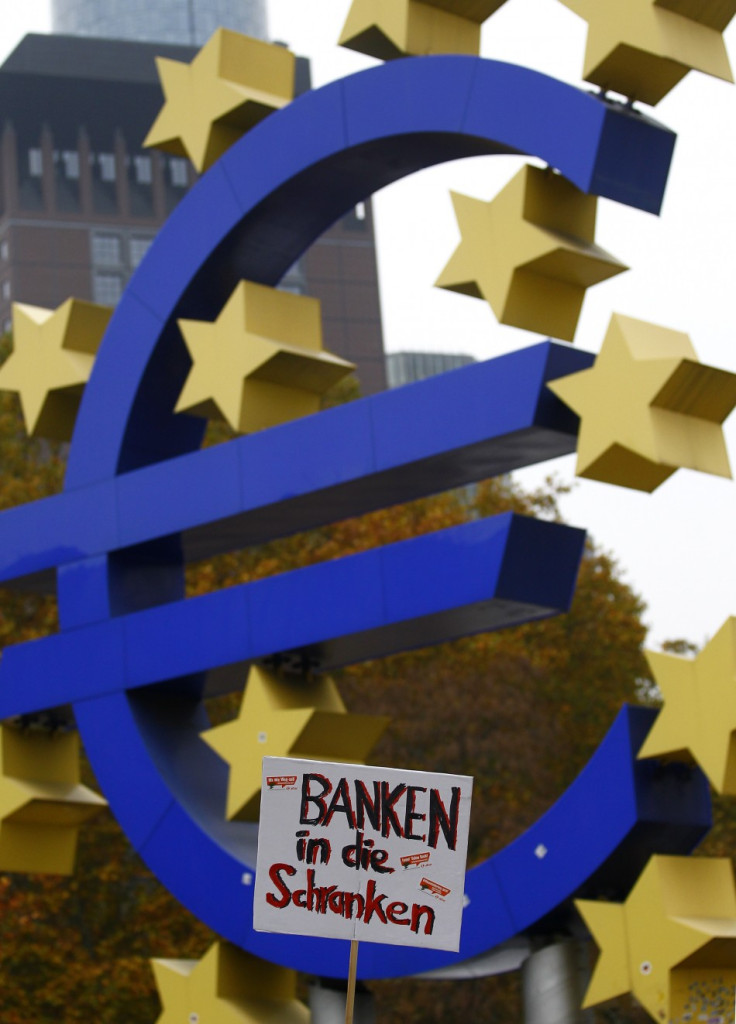European Markets Extend Losses After Soft German Data

European markets were on the back foot once again Thursday after disappointing industrial production data from Germany cast doubt on the ability of the region's largest economy to lead the area out of recession.
A sharp fall in Germany's industrial output in February - nearly three times more than economists had forecast - set the table for a third day of declines in European stock markets. Bond investors were once again dictating the overall tone, lifting yields on Spanish and Italian debt and pricing default insurance higher in an active session ahead of a four-day Easter holiday.
The broadest measure of European equity markets, the FTSE Eurofirst 300, extended yesterday's decline by mid-day London time, falling a further 7 points to 1,043.79, taking the weekly loss to nearly 4 percent.
Investors sought refuge in the safest instruments as shares plunged, lifting the German bund futures for June settlement to a contract-high of 139.22, an 80-tick advance from Wednesday's close.
An auction of French government debt, known in the market as OATs, reflected the so-called "flight-to-safety" theme. The Agence France Tresor, France's debt agency, sold €8.4bn worth of bonds, with buyers bidding €3.27 for every €1 offered for sale. Yields rose marginally as the broader market softened, but five-year OATs remained firmly under 2 percent, exiting the auction at 1.96 percent.
Europe's service sector, the most important driver of the region's economy, may have slid back into recession in March, according to a second reading of the the Markit Purchasing Managers' Index (PMI) Wednesday. The 49.1 figure, a mild improvement from the first tally but still down from February, was firmly below 50 - the level at which most economists say marks the difference between expansion and contraction.
UK Gilt futures were also active, touching a three-week high of 115.25, as data from the Office for National Statistics indicated UK manufacturing output unexpectedly fell for a second consecutive month. Bank of England Governor Mervyn King kept his key lending rate unchanged at 0.5 percent - the lowest since 1694 - and made no alterations to its £325bn asset purchase programme.
The cost of insuring Spanish government debt rose sharply, with credit default swap (CDS) contracts trading 18 basis points (bps) high to 476bps. That means an investor would need to pay €47,600 each year for five years to insure €10m in Spanish government bonds against default. CDS prices for Italy were also pressured, rising 15bps to 424bps. A basis point is 0.01 percent.
Foreign exchange markets were also active, with the euro falling to a mid-March low of $1.3057 against the US dollar. The single currency also fell below the unofficial "floor" value against of 1.20 against the Swiss franc for the first time since the policy was explicitly stated by the country's national bank in September of last year.
© Copyright IBTimes 2025. All rights reserved.





















